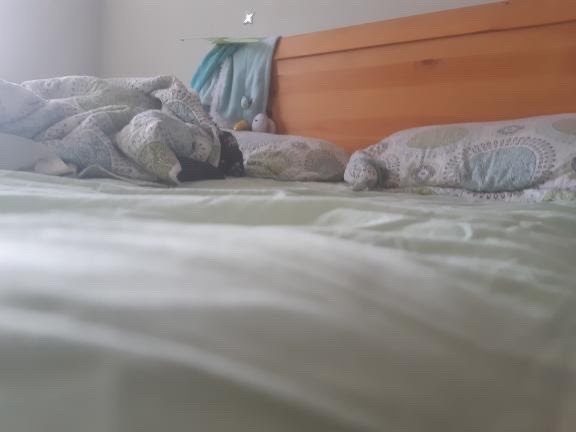We will be featuring some guest posts by students in the coming weeks–enjoy!
Do High School Student Sleeping Habits Need To Change?
By Malia Mercado
 Photo by Paige F.
Photo by Paige F.
33 grade nine students from Samuel Robertson Technical (SRT) took a survey on their sleeping habits & here are the results:
On average students want about 9 hours of sleep but students only get about 7.5 hours of sleep on weekdays & about 9 hours on weekends.
One of the councillors at SRT, Ms. Shields explained that adolescents (ages 13 – 18) should get 8+ hours of sleep because the brain is still developing & sleep is crucial for brain development.
Ms. Shields also mentioned that the time a student wakes up & goes to bed depends on their schedule. So a student’s sleep schedule can be different on the weekend or during breaks.
“I always encourage students just to count back 8 hours, say you need to be up at 7:30 to get ready for school then you need to count back 8 hours from then.” Ms. Shields said.
Out of all the students surveyed, 96% of students use some kind of electronics before bed. On average students use their electronics for just over 1.5 hours right before bed & just about 20% of students end up sleeping with their phone in hand.
Ms. Shields explains that the light, which from doing further research on http://www.bluelightexposed.com/ is specifically blue light, emitted from screens affects the production of melatonin, which is a hormone we need for sleep.
Another factor that Ms. Shields mentioned relating to electronics & phones is the effects social media can do to your mental health, which can affect the time students go to bed. The anxiety & pressure from social media can keep students up at night.
Roughly 55% of the students surveyed listen to music, ASMR, etc before or while they sleep or both, before & while they sleep.
“I think calming music or mindfulness is really helpful before bed so I often talk to students about the Mindshift app.” Ms. Shields said.
She explained that Mindshift, a Canadian based app, can help with anxiety and mindfulness. It has breathing exercises that people can listen to & it also has mental vacations. Mindshift can help people sleep easier because it calms the brain down.
Close to 70% of students procrastinate & end up doing chores, homework, etc late at night often. Ms. Shields mentioned that students should manage their time & avoid procrastination so they don’t end up doing homework late at night.
Nearly 70% of students play sports of some kind & of that 70%, just over 60% of those students think it affects them from going to sleep at a decent time because of early morning or late night practices & games.
“[For] some young people exercising is a great habit before bed because it tires them out.” Ms. Shields said. She also mentions that students should experiment with what works for them.
Just over 80% of students drink caffeine &/or sugary drinks and of that 80%, they drink an average amount of just about 1 cup of a caffeinated drink.
The majority of student caffeine drinkers think it doesn’t affect their sleep but Ms. Shields explained that students should avoid caffeine intake later in the day.
Just about 80% of students have pulled an ‘all-nighter’ before. Just under 80% of those students did it just for fun. As was said before not getting enough sleep or in this case not getting any sleep is not healthy for brain development in teens.
“I think it’s trial & error, not one thing works for everybody with sleep.” Ms. Shields said. She recommends experimenting with sleeping habits & seeing what works.
